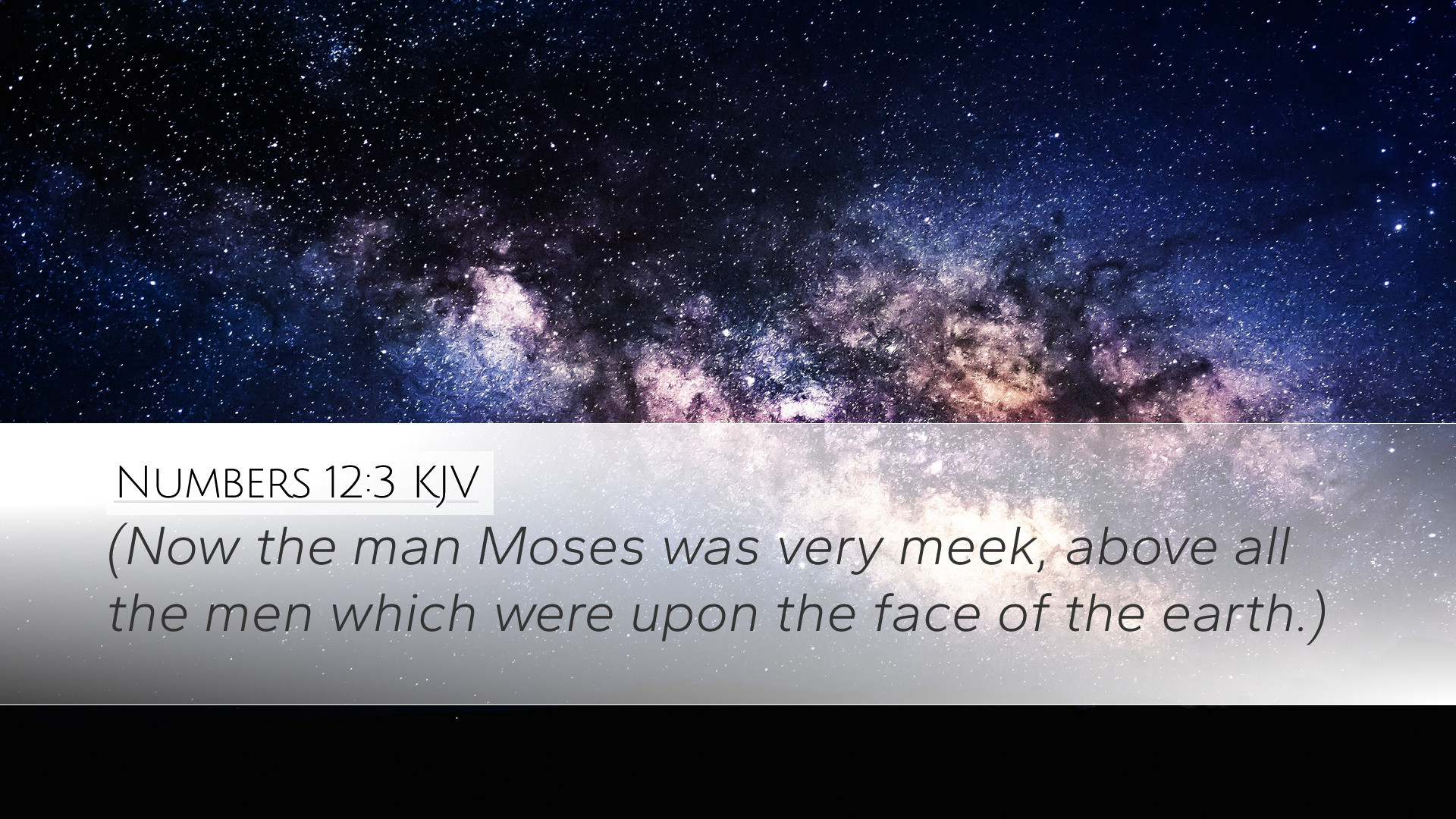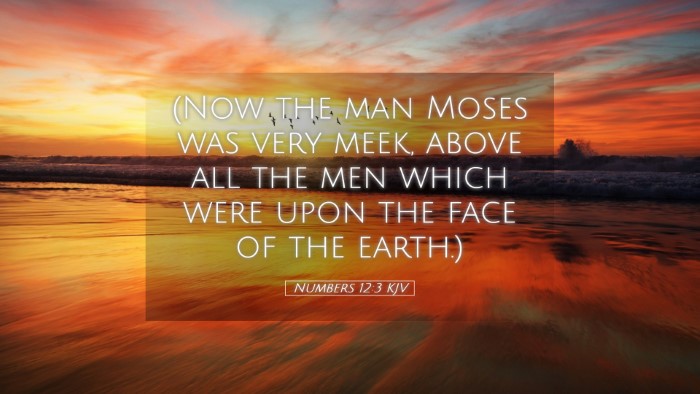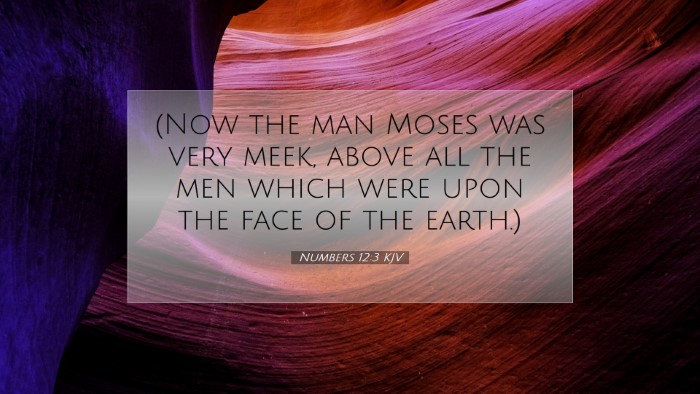Commentary on Numbers 12:3
Bible Verse: "Now the man Moses was very meek, above all the men which were upon the face of the earth." (Numbers 12:3)
Introduction
This verse presents a profound insight into the character of Moses, describing him as "very meek." In the context of Numbers 12, this humility serves as a sharp contrast to the actions of Miriam and Aaron, who spoke against him. The focus here will be to synthesize insights from historical Bible commentaries, providing a rich theological understanding of Moses's meekness, its implications, and the surrounding narrative.
The Significance of Meekness
Moses’ meekness is notably highlighted in this chapter. According to Matthew Henry, meekness is not weakness but is rather a strength under control. This attribute of Moses is essential as it reflects the nature of true leadership in God’s eyes. Meekness involves humility and patience, often demonstrated through a lack of retaliation against those who oppose or criticize.
Meekness Defined
Albert Barnes elaborates on the Hebrew term for meekness. The term used (anav) is associated with the idea of being lowly or humble and is often seen in the context of submitting to God's will. This humility is crucial for a leader, especially in the face of rebellion or dissent.
Historical Context of Numbers 12
In Numbers 12, the backdrop for this description emerges from a familial conflict. Adam Clarke notes that this incident is pivotal for understanding the dynamics between Moses, Miriam, and Aaron. Their questioning of Moses's authority hinges on jealousy and the desire for recognition. The verse underscores that God values the disposition of meekness over the accolade of titles, a principle that carries remarkable relevance for today’s church leadership.
Moses: A Model for Leaders
Moses's humility serves as a model for church leaders, exemplifying how to handle criticism and opposition gracefully. Matthew Henry points out that despite being the leader of the Israelites, Moses does not assert his authority forcibly. Instead, he remains steadfast in prayer, demonstrating that true leadership often comes from humility rather than dominance. This provides a lesson for pastors and leaders in recognizing that their authority must be rooted in servanthood.
Divine Response to Meekness
As the chapter proceeds, God intervenes in defense of Moses. Albert Barnes interprets this divine action as a validation of Moses's character. The key takeaway is that God honors those who embody meekness, intervening on their behalf when they are wronged. This aspect is critical for Bible scholars to understand the reciprocal nature of God’s favor: humility invites divine support.
The Contrast of Rebellion
The rebellion of Miriam and Aaron serves as a foil to Moses's character. Adam Clarke mentions that their criticism stems from a misplaced understanding of God’s distribution of authority. Where they sought to elevate their status, Moses bowed lower before God. This incident elucidates a vital principle in Christian community: the dangers of pride and the spiritual consequences it invites.
Moses: A Prophetic Contrast
Moses is described as the most humble man in the earth, positioning him prophetically among the leaders of Israel. Such a standard challenges current leaders to aspire toward Christ-like humility. Matthew Henry emphasizes that meekness does not only define how one treats others but also how one relates to God. It acknowledges a dependence on His grace rather than personal achievement.
Meekness Today
In contemporary Christian leadership, the lessons from Moses' meekness are universally applicable. Albert Barnes asserts that today’s leaders must embody a spirit of service and humility. The church thrives under leaders who prioritize others over themselves, echoing the model set forth by Moses.
Conclusion
This commentary on Numbers 12:3 encourages a rich understanding of meekness as rooted in a deep relationship with God. As seen through the lens of Moses’s life, it becomes evident that meekness is an essential quality for any leader aspiring to guide effectively in faith. The affirmation of Moses as the meekest man reflects God’s approval of humility, a principle that transcends generations.
Reflection Questions
- How can we cultivate a spirit of meekness in our own lives?
- In what ways do we see pride affecting leadership in the church today?
- What practical steps can leaders take to ensure their authority reflects servanthood and humility?


